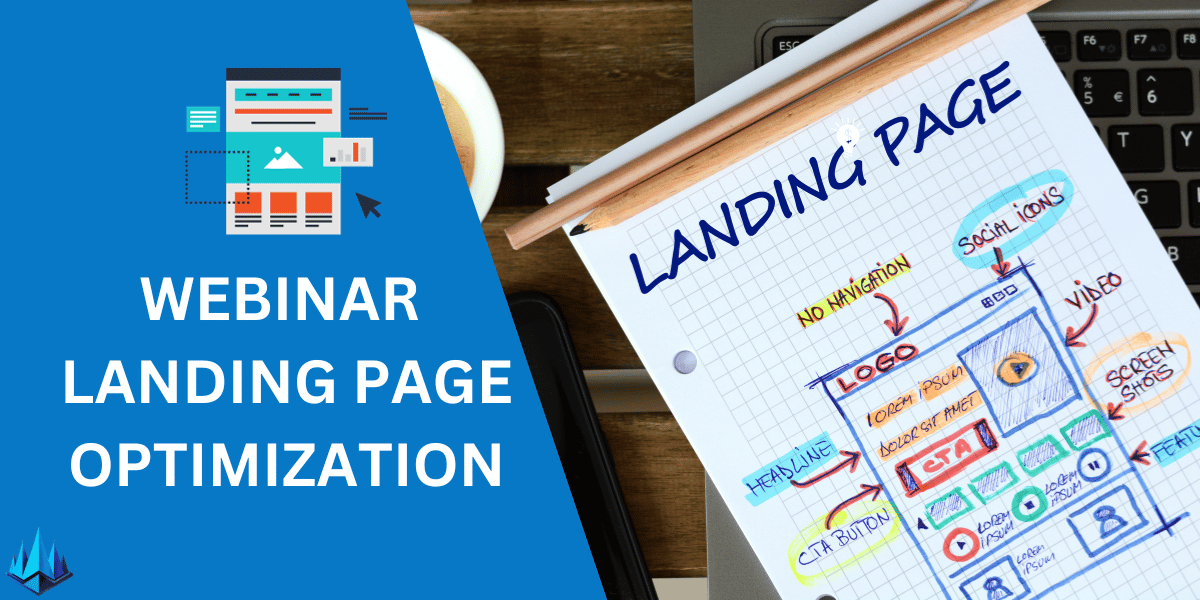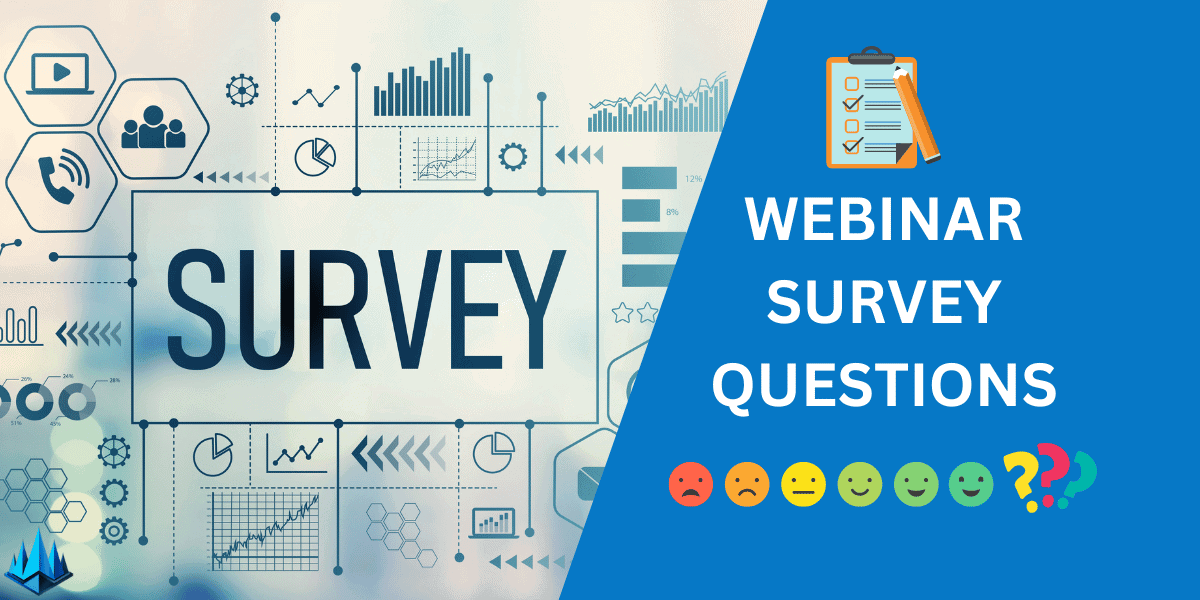As the world becomes more digital, businesses are increasingly turning to ecommerce platforms to reach customers and drive sales. For enterprises, choosing the right ecommerce platform is crucial to ensure that they can handle high volumes of traffic, manage inventory and products effectively, and provide a seamless customer experience. With so many options available, it can be challenging to determine which platform is the best fit for your business.
In this article, we will explore the best enterprise ecommerce platforms and their key features. We will also discuss important considerations such as cost and pricing, payment and checkout processes, inventory management, marketing and SEO capabilities, mobile and desktop experience, social media integration, and reporting and analytics. By the end of this article, you will have a better understanding of what to look for in an enterprise ecommerce platform and which options are best suited for your business.
Key Takeaways
- Choosing the right enterprise ecommerce platform is crucial for businesses looking to reach customers and drive sales in the digital age.
- Key features to consider when evaluating enterprise ecommerce platforms include cost and pricing, payment and checkout processes, inventory management, marketing and SEO capabilities, mobile and desktop experience, social media integration, and reporting and analytics.
- The top enterprise ecommerce platforms include Adobe Commerce, Shopify Plus, and Shift4Shop, each with their own unique strengths and benefits.
Understanding The Best Enterprise Ecommerce Platforms
As an enterprise-level business, choosing the right ecommerce platform is crucial to your success. Enterprise ecommerce platforms are designed to handle the high volume of traffic, orders, and data that come with running a large online business. In this section, we will provide an overview of enterprise ecommerce platforms and what to consider when selecting one.
What are Enterprise Ecommerce Platforms?
Enterprise ecommerce platforms are powerful software solutions that cater to the needs of large businesses with high transaction volumes. They provide the necessary infrastructure to manage complex ecommerce operations, including inventory management, order processing, payment processing, and shipping. They also offer advanced features such as custom integrations, personalized promotions, and sophisticated analytics.
Why Use an Enterprise Ecommerce Platform?
Using an enterprise ecommerce platform offers many benefits for businesses, including:
- Scalability: Enterprise ecommerce platforms are designed to grow with your business, so you can easily handle increased traffic and sales volume without experiencing downtime or other issues.
- Customization: With an enterprise ecommerce platform, you can customize your online store to meet your needs and requirements.
- Security: Enterprise ecommerce platforms offer robust security features to protect your business and your customers’ data.
- Integration: Enterprise ecommerce platforms can integrate with other business systems, such as CRM, ERP, and accounting software, to streamline operations and improve efficiency.
- Support: Enterprise ecommerce platforms typically offer dedicated support to ensure your business runs smoothly.
What to Consider When Selecting an Enterprise Ecommerce Platform
When selecting an enterprise ecommerce platform, there are several factors to consider, including:
- Scalability: Ensure the platform can handle your business’s growth and can scale with your needs.
- Customization: Look for a platform that allows you to customize your online store to meet your unique requirements.
- Security: Choose a platform with robust security features to protect your business and your customers’ data.
- Integration: Look for a platform that can integrate with other business systems to streamline operations and improve efficiency.
- Support: Ensure the platform offers dedicated support to help you resolve any issues quickly and efficiently.
In conclusion, selecting the right enterprise ecommerce platform is critical to your business’s success. By understanding what enterprise ecommerce platforms are, their benefits, and what to consider when selecting one, you can make an informed decision that meets your business’s unique needs.
Top Enterprise Ecommerce Platforms

When it comes to choosing the best enterprise ecommerce platform, there are several options available in the market. We have researched and analyzed the top ecommerce platforms to help you make an informed decision for your business. Here are the top enterprise ecommerce platforms that we recommend:

Shopify Plus
Shopify Plus is a popular e-commerce platform that offers a range of features and tools to help businesses grow. It is a fully hosted platform that provides a seamless shopping experience for customers. Shopify Plus offers advanced customization options, an easy-to-use interface, and 24/7 customer support. It also offers a range of integrations with other tools and platforms, making it a versatile choice for businesses of all sizes.

Bigcommerce
Bigcommerce is another enterprise e-commerce platform that offers a range of features and tools to help businesses grow. It offers a fully hosted solution that provides a seamless shopping experience for customers. Bigcommerce offers advanced customization options, an easy-to-use interface, and 24/7 customer support. It also offers a range of integrations with other tools and platforms, making it a versatile choice for businesses of all sizes.

Adobe Commerce
Adobe Commerce, formerly known as Magento, is a powerful enterprise e-commerce platform that offers a range of features and tools to help businesses grow. It offers advanced customization options, an easy-to-use interface, and 24/7 customer support. Adobe Commerce also offers a range of integrations with other tools and platforms, making it a versatile choice for businesses of all sizes. It also comes with state-of-the-art artificial intelligence (AI)-powered tools to post relevant content and raise your team’s productivity levels.

WooCommerce
WooCommerce is a popular e-commerce platform that is built on top of WordPress. It offers a range of features and tools to help businesses grow. It is an open-source platform that provides a seamless shopping experience for customers. WooCommerce offers advanced customization options, an easy-to-use interface, and 24/7 customer support. It also offers a range of integrations with other tools and platforms, making it a versatile choice for businesses of all sizes.
In conclusion, the above enterprise e-commerce platforms are some of the best options available in the market. Each platform has its own unique features and benefits, so it is important to choose the one that best suits your business needs.
Key Features of a Good Enterprise Ecommerce Platform
When it comes to choosing an enterprise ecommerce platform, there are several key features that are essential for success. In this section, we will discuss the most important features that a good enterprise ecommerce platform should have.
Scalability
Scalability is one of the most important features of an enterprise ecommerce platform. It is essential that the platform can handle a large volume of traffic and transactions without slowing down or crashing. A good platform should be able to scale up or down as needed to accommodate changes in traffic and sales volume.
Customization
Customization is another key feature of a good enterprise ecommerce platform. It is important that the platform can be customized to meet the specific needs of the business. This includes the ability to customize the look and feel of the storefront, as well as the ability to add custom functionality and integrations.
Integration
Integration is also an important feature of a good enterprise ecommerce platform. It is essential that the platform can integrate with other systems and tools that the business uses, such as ERP systems, CRM systems, and marketing automation tools. This allows for a seamless flow of data between systems, which can help to streamline operations and improve efficiency.
Security
Security is a critical feature of any ecommerce platform, but it is especially important for enterprise-level businesses. A good platform should have robust security features, such as SSL encryption, two-factor authentication, and regular security updates. It should also be compliant with industry standards and regulations, such as PCI-DSS and GDPR.
Customer Support
Finally, customer support is an important feature of a good enterprise ecommerce platform. It is essential that the platform provider offers excellent customer support, including a dedicated support team, 24/7 availability, and fast response times. This ensures that any issues or problems can be quickly resolved, minimizing downtime and maximizing sales.
In summary, a good enterprise ecommerce platform should have the features of scalability, customization, integration, security, and customer support. These features are essential for success in the competitive world of ecommerce and can help businesses to streamline operations, improve efficiency, and increase sales.
Cost and Pricing
When it comes to enterprise ecommerce platforms, cost and pricing are important factors to consider. In this section, we will discuss the different types of fees associated with these platforms.
Subscription Fees
Most enterprise ecommerce platforms charge a subscription fee for their services. These fees can range from a few hundred dollars per month to several thousand dollars per month, depending on the platform and the level of service you require. Some platforms offer tiered pricing plans, with more features and support available at higher price points.
We recommend that you carefully evaluate your business needs before selecting an enterprise ecommerce platform. Consider factors such as the number of products you plan to sell, the size of your customer base, and the level of support you require. This will help you choose a platform that offers the right balance of features and affordability.
Transaction Fees
In addition to subscription fees, many enterprise ecommerce platforms charge transaction fees for each sale you make. These fees are typically a percentage of the total sale amount and can range from 0.5% to 3% or more, depending on the platform.
Transaction fees can add up quickly, especially if you have a high volume of sales. Some platforms offer lower transaction fees for higher-priced subscription plans, so it’s important to consider this when evaluating pricing options.
It’s also worth noting that some payment processors charge their own transaction fees in addition to the fees charged by the ecommerce platform. Be sure to factor in these fees when calculating the total cost of using an enterprise ecommerce platform.
Overall, when evaluating enterprise ecommerce platforms, it’s important to consider both subscription fees and transaction fees. By carefully evaluating your business needs and choosing a platform that offers the right balance of features and affordability, you can ensure that you are getting the best value for your money.
Payment and Checkout Process
When it comes to enterprise ecommerce platforms, having a smooth and secure payment and checkout process is crucial. We understand that payment processing can be complex and challenging, but it is essential to get it right to ensure customer satisfaction and minimize cart abandonment rates.
One of the most critical factors to consider when choosing an ecommerce platform is the payment gateway and processor. A payment gateway is a service that processes credit card payments for online and offline businesses. It is essential to select a payment gateway that is secure, reliable, and compatible with your ecommerce platform.
Another crucial aspect of the payment and checkout process is the checkout page. A well-designed and user-friendly checkout page can help reduce cart abandonment rates and increase conversions. We recommend choosing an ecommerce platform that allows for customization of the checkout page to match your brand and optimize the user experience.
Processing fees are another consideration when choosing a payment processor. Many payment processors charge a percentage of each transaction, which can add up quickly and eat into your profits. It is essential to compare processing fees and choose a payment processor that offers competitive rates while still providing the necessary security and reliability.
In conclusion, the payment and checkout process is a critical aspect of any enterprise ecommerce platform. We recommend choosing a platform that offers a secure and reliable payment gateway and processor, customizable checkout pages, and competitive processing fees. By doing so, you can ensure a smooth and secure payment experience for your customers and increase your chances of success in the competitive world of ecommerce.
Managing Inventory and Products
As an enterprise ecommerce platform, we understand the importance of efficient inventory management and product organization. Our platform offers robust inventory management tools that help you keep track of your stock levels, set reorder points, and manage multiple warehouses or locations.
Our inventory management system allows you to easily add, edit, and delete products from your online store. You can also categorize your products, set up product variants, and add images and descriptions to make your products more appealing to customers.
We also support the sale of digital products, such as software, music, and ebooks. Our platform makes it easy to manage and sell digital products, with features like automatic delivery and secure download links.
With our platform, you can sell unlimited products without worrying about hitting any limits. We offer a scalable solution that can handle any number of products, whether you have a small or large inventory.
Our platform also offers advanced features like product bundling, cross-selling, and upselling, which can help increase your average order value and boost your revenue.
Overall, our inventory management and product organization tools are designed to help you manage your inventory more efficiently and sell more products online.
Marketing and SEO Capabilities
When it comes to choosing an enterprise ecommerce platform, it’s important to consider the marketing and SEO capabilities. A platform that is optimized for search engines and has built-in marketing tools can help drive traffic to your site and increase sales.
One of the most important factors to consider is the ability to optimize your site for search engines. This includes the ability to customize meta tags, URLs, and other on-page elements. It’s also important to have a platform that is mobile-friendly and fast-loading, as these are key factors in search engine rankings.
Another important feature to look for is the ability to create and manage Google Shopping campaigns. Google Shopping is a powerful tool for driving traffic and sales, and having a platform that integrates with it can make it easier to manage your campaigns.
In addition to SEO and Google Shopping, it’s important to have built-in marketing tools such as email marketing, social media integration, and abandoned cart recovery. These tools can help you stay in touch with your customers and increase sales.
Overall, when choosing an enterprise ecommerce platform, it’s important to consider the marketing and SEO capabilities. A platform that is optimized for search engines and has built-in marketing tools can help drive traffic and increase sales, ultimately leading to the success of your ecommerce business.
Mobile and Desktop Experience
When it comes to choosing an enterprise ecommerce platform, it’s important to consider the mobile and desktop experience. With more and more consumers shopping on their mobile devices, it’s crucial that your ecommerce platform provides a seamless and user-friendly mobile experience.
Our research shows that the best enterprise ecommerce platforms offer responsive design, which means that the website automatically adjusts to fit the screen size of the device being used. This ensures that the website looks great and is easy to use, regardless of whether the customer is using a desktop computer, tablet, or smartphone.
In addition to responsive design, the best ecommerce platforms also offer mobile-specific features such as mobile-optimized checkout, mobile-friendly product pages, and mobile-specific search functionality. These features make it easier for customers to browse and purchase products on their mobile devices, which can lead to increased sales and customer satisfaction.
When it comes to the desktop experience, the best enterprise ecommerce platforms offer a user-friendly interface that is easy to navigate and visually appealing. This includes features such as intuitive navigation menus, clear product images, and easy-to-read product descriptions.
It’s also important to consider the checkout process on desktop devices. The best ecommerce platforms offer a streamlined and secure checkout process that makes it easy for customers to complete their purchases. This includes features such as one-click checkout, guest checkout, and saving customer information for future purchases.
Overall, the best enterprise ecommerce platforms offer a seamless and user-friendly experience on both mobile and desktop devices. By providing a great user experience, you can increase customer satisfaction and drive sales for your business.
Social Media Integration
At [our company], we understand the importance of social media integration when it comes to choosing the best enterprise ecommerce platform. Social media platforms such as Facebook, Instagram, and Pinterest have billions of users, making them a great way to reach a wider audience and increase sales.
Many of the top enterprise ecommerce platforms on the market today offer seamless integration with social media platforms. For example, Salesforce Commerce Cloud offers AI-driven personalization for targeted marketing and allows customers to buy products directly from social media platforms. This feature, known as social commerce, is a great way for businesses to reach a wider audience and increase sales.
Another top enterprise ecommerce platform that offers social media integration is Shopify Plus. With Shopify Plus, businesses can easily connect their online store to their social media accounts, allowing them to sell products directly on social media platforms. This feature is especially useful for businesses that have a large following on social media and want to capitalize on that audience.
In addition to social commerce, social media integration can also help businesses with their marketing efforts. Many enterprise ecommerce platforms offer integrations with various social media platforms, allowing businesses to easily share their products and promotions with their followers. For example, BigCommerce offers integrations with Facebook, Instagram, and Pinterest, making it easy for businesses to share their products and promotions with their followers on these platforms.
Overall, social media integration is an important feature to consider when choosing an enterprise ecommerce platform. By allowing businesses to reach a wider audience and increase sales, social media integration can help businesses grow and succeed in the competitive world of ecommerce.
Reporting and Analytics
At our company, we understand the importance of data-driven decision-making for enterprise e-commerce businesses. That’s why we believe that reporting and analytics capabilities are crucial for any enterprise e-commerce platform.
When evaluating enterprise e-commerce platforms, it’s important to consider the reporting and analytics features that are available. These features can help you gain insights into your customers’ behavior, track your sales performance, and identify opportunities for growth.
Some of the key reporting and analytics capabilities to look for in an enterprise e-commerce platform include:
- Standard and Ad-Hoc Reporting: Look for a platform that provides both standard and ad-hoc reporting capabilities. Standard reports can give you a quick snapshot of your business performance, while ad-hoc reports allow you to create custom reports based on your specific needs.
- Real-Time Analytics: Real-time analytics can help you monitor your website traffic and sales performance in real-time, so you can make quick decisions and take action as needed.
- Custom Dashboards: Custom dashboards can help you visualize your data and gain insights at a glance. Look for a platform that allows you to create custom dashboards based on your specific needs.
- Integration with Third-Party Analytics Tools: Look for a platform that integrates with popular third-party analytics tools like Google Analytics, Mixpanel, and Segment. This can help you gain even deeper insights into your customers’ behavior and track your marketing campaigns.
Overall, we believe that reporting and analytics capabilities are essential for any enterprise e-commerce platform. By choosing a platform with robust reporting and analytics features, you can gain valuable insights into your business performance and make data-driven decisions that can help you grow and succeed.
Conclusion
After reviewing the top enterprise ecommerce platforms available in 2023, we have identified the most suitable options for businesses of varying sizes and needs.
For businesses that require a robust and customizable platform, Magento Open Source/Adobe Commerce Cloud is an excellent choice. Its open-source nature allows for extensive customization, and its integration with Adobe’s suite of products makes it a powerful tool for businesses that require a complete digital experience.
For businesses that prioritize SEO, Shift4Shop (formerly 3dcart) is the best option. Its built-in SEO features and integration with Google Shopping make it an ideal choice for businesses that want to rank higher in Google searches and sell more products.
For businesses that want a comprehensive suite of tools to simplify the online selling process, ZohoCommerce is the way to go. Its user-friendly interface and seamless integration with other Zoho applications create a unified ecosystem for businesses.
BigCommerce is the perfect choice for brands that want to start up quickly and easily and scale robustly. Its scalability and ease of use make it an ideal platform for large, fast-growing businesses.
Shopify Plus is a great option for businesses that require a reliable and secure platform. Its comprehensive security features and 24/7 support make it a safe and dependable choice for businesses of all sizes.
WooCommerce is an excellent choice for businesses that want to leverage the power of WordPress. Its integration with WordPress makes it a powerful tool for businesses that require a complete digital experience.
Finally, Salesforce Commerce Cloud is an excellent choice for businesses that require a cloud-based platform. Its robust features and scalability make it an ideal choice for large enterprises.
In conclusion, your business’s best enterprise ecommerce platform depends on your specific needs and goals. By weighing the factors mentioned above, you can select the platform that best aligns with your business requirements.

Frequently Asked Questions
What are some examples of successful startups using ecommerce platforms?
Many successful startups have used ecommerce platforms to launch and grow their businesses. For example, Glossier, a beauty brand, uses Shopify to power its online store. Warby Parker, an eyewear brand, uses Demandware, which is now part of Salesforce Commerce Cloud. Allbirds, a sustainable footwear brand, uses Shopify Plus.
How does Adobe Commerce compare to other enterprise ecommerce platforms?
Adobe Commerce, formerly known as Magento, is a popular enterprise ecommerce platform that offers a wide range of features, including advanced product management, flexible pricing rules, and powerful search capabilities. Compared to other enterprise ecommerce platforms, Adobe Commerce stands out for its flexibility and scalability. However, it may require more technical expertise to set up and manage than some other platforms.
What are the key features to consider when choosing an enterprise ecommerce platform?
When selecting an enterprise ecommerce platform, it is crucial to consider the following key features:
1. Scalability: The platform must be able to handle a high volume of traffic and transactions without compromising site performance.
2. Customization: The platform should allow for customizations that align with the unique needs of the business.
3. Security: The platform must provide robust security measures to protect sensitive customer data.
4. Integration: The platform should integrate seamlessly with other business systems, such as inventory management and CRM tools.
Support: The platform should offer reliable and responsive technical support.
What are the advantages of using BigCommerce Enterprise for ecommerce?
BigCommerce Enterprise is a cloud-based ecommerce platform that offers a range of features, including customizable checkout, built-in payment processing, and multi-channel selling capabilities. Some advantages of using BigCommerce Enterprise include:
1. Ease of use: The platform is user-friendly and easy to navigate, making it ideal for businesses without extensive technical expertise.
2. Scalability: BigCommerce Enterprise can handle high volumes of traffic and transactions without compromising site performance.
3. Customizability: The platform allows for extensive customization to align with the unique needs of the business.
4. Support: BigCommerce Enterprise offers 24/7 technical support.
Which international ecommerce platforms offer the best support for multiple languages and currencies?
Several international ecommerce platforms offer support for multiple languages and currencies, including:
1. Shopify: This platform offers support for over 20 languages and 100 currencies.
2. Magento: Adobe Commerce offers support for multiple languages and currencies, and can be customized to support additional languages and currencies.
3. BigCommerce: This platform offers support for over 40 languages and 100 currencies.
What are the top factors to consider when selecting a website platform for ecommerce?
When selecting a website platform for ecommerce, some of the top factors to consider include:
1. Ease of use: The platform should be user-friendly and easy to navigate.
2. Customizability: The platform should allow for extensive customization to align with the unique needs of the business.
3. Scalability: The platform should be able to handle high volumes of traffic and transactions without compromising site performance.
4. Security: The platform must provide robust security measures to protect sensitive customer data.
5. Integration: The platform should integrate seamlessly with other business systems, such as inventory management and CRM tools.











